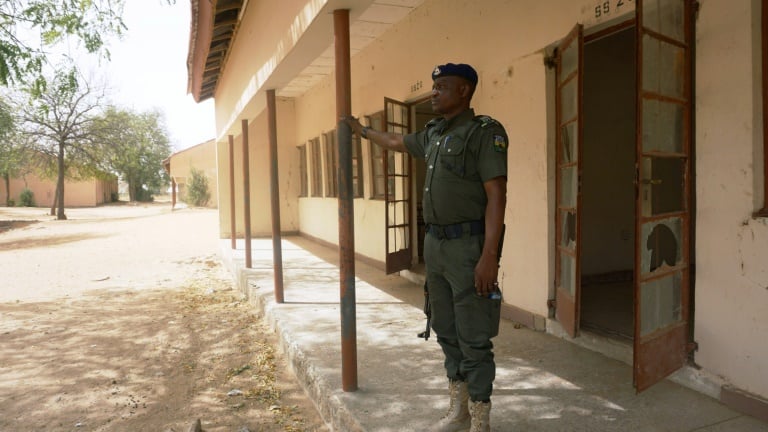ANC member not backing down in fight against Paul Mashatile
The disappearance of the students from Dapchi, in Yobe state, on February 19, also threatens access to education for girls in a region already plagued by low levels of school attendance.
The Nigeria Security and Civil Defence Corps (NSCDC) said last weekend it had sent 250 “armed operatives” to provide security in the 30 public secondary schools in Yobe.
Five hundred others were sent to neighbouring Borno state and a further 400 to Adamawa state, according to the head of the paramilitary group, Abdullahi Muhammadu.
But Alhaji Deri, whose daughter, Aisha, is among the missing, and students who escaped the kidnapping said the increased security came too late for Dapchi.
“No parent will send his daughter back to that school, even those whose daughters escaped abduction. If there is any other school that is secure they will go,” said Deri.
“But not that school because we are not guaranteed their security.”
Fatima Bukar, 13, said: “If I’m taken to a safe school, I’ll go. But I’m certainly not going back to that school.
“The thought of my abducted schoolmates won’t allow me to have peace and study. My elder sister and 10 classmates are among the kidnapped students.
“I can’t go back to that school even if it is reopened.”
– ‘Dereliction of duty’ –

A policeman stands on guard at the empty Government Girls Technical College in northern Nigerian, where 110 girls were kidnapped by Boko Haram Islamists last month
The last mass kidnapping, which saw more than 200 girls kidnapped from their school in the Borno town of Chibok in April 2014, led to numerous pledges to improve security.
Among them was the “Safe Schools Initiative”, launched in May 2014 by the UN special envoy on education, Britain’s former prime minister Gordon Brown.
The scheme helped nearly 50,000 children affected by the conflict, including moving vulnerable students in high-risk areas to safer parts of the country.
When President Muhammadu Buhari took office in 2015, it became part of the Presidential Committee on the North-East Initiative, which seeks to coordinate humanitarian and development activities.
But the PCNI said on its website the Safe Schools Initiative and others like it “have now been wound down”, despite calls from campaigners to revive the scheme.
Committee spokesman Alkasim Abdulkadir said that 2,000 students from hard-to-reach areas and danger zones were transferred from the northeast to 43 schools elsewhere in the country.
The transfers pre-dated the inauguration of the PCNI in October 2016, he added.
Teachers in Yobe, particularly those at girls schools, have reported seeing no change in safety measures on the ground.
Sesugh Akame, from the #BringBackOurGirls campaign group set up after Chibok, said there had been “absolutely no improvement” in school security.
“Schools remain vulnerable. Successive administrations have not prioritised it. Why, no-one can explain,” Akame added, calling it a “dereliction of duty”.
– Girls affected –
Boko Haram’s quest to establish a hardline Islamic state has left at least 20,000 people dead and more than 2.6 million homeless since 2009.
The group’s name translates roughly from Hausa as “Western education is forbidden” and schools teaching a so-called secular curriculum have been repeatedly targeted.
According to the UN children’s fund Unicef, nearly 1,400 schools have been destroyed and more than 2,295 teachers have been killed in the last nine years.
Some of the most high-profile attacks have been against schoolchildren, including in February 2014, when at least 43 boys were killed in the Yobe town of Buni Yadi.
Such attacks, the fear they cause and lengthy school closures that follow, have done little to improve low levels of education in the northeast.
The Africa Health, Human and Social Development Information Service said in 2015 that more than half (52.4 percent) of men and boys aged six and above in the northeast had no education.
For girls and women, it neared two-thirds (61.1 percent). In Yobe, the figures rose to 83.3 percent for males, indicating an even higher score for females.
In Nigeria as a whole, Unicef has said some 8.7 million children aged six to 11 are not in school.
Of those, about five million are estimated to be girls — possibly the highest number in the world.
Yagana Mustapha, 15, who escaped the kidnapping in Dapchi, said: “The number of girls that go to school in this region is not much.
“Parents will be more unwilling to allow their daughters to go to school. They will be afraid Boko Haram will kidnap them.”
Download our app